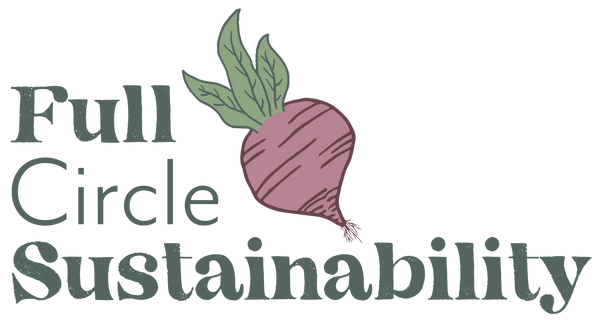
Pass It On
Two moms came into the shop a couple weeks ago with separate but related lessons on sustainability.
One of the moms was mine. She had found an old reusable floss container—much like the ones we sell, but clear plastic instead of glass and probably 60 years older. There was a time in our history when that floss container was the norm; it's what my mom used growing up in the 1950s and '60s. But norms change, and it probably became harder to find floss to fill that container. And by the time I was born, I never knew that floss was ever sold in anything other than single-use plastic. It wasn't that my family stopped caring. We recycled the plastic when we thought we could and put the little aluminum piece with the scrap metal for recycling. Our environmental values were still there. But we didn't have access to good systems for living those out. The whole idea of refillable floss was as good as forgotten.

So that was one mom.
The other mom came to the shop with an empty makeup tube. She had cut the top off at an angle and put it back on like a lid so she could get out every last bit without the product drying up. She said she's cut up tubes her entire life but realized her grown daughters didn't know they could do that. She had never intentiontionally taught them, and they hadn't noticed or picked it up by themselves. I'm not surprised. I grew up at the same time in an eco-conscious family, and that's not a trick I had learned either.
What both of these stories illustrate to me is that we need to be intentional about passing down knowledge about sustainability to younger generations. We cannot assume they will naturally pick it up, and we cannot assume that future generations will automatically know what came before them. Our daily practices, skills, and knowledge can easily go by the wayside as norms and technologies change. Memories fade quickly—especially in the glow of convenience and a flood of consumption-based marketing. If we don't share what we know now, it can end up at the back of a drawer like the floss container or just never picked up like the idea of cutting up tubes.
We love when Full Circle prompts people to remember and share their forgotten knowledge. When we see parents actively teaching their kids about reusing and recycling. And when we see parents learning from their own kids (of any age) about how to reduce their carbon footprint. The conversations that will lead to environmental solutions are circular and intergenerational.
So today, we send our thanks to all the moms doing their best on behalf of Mother Earth! Whether you're trying to raise eco-conscious kids—or learn from your own kids what society failed to teach you—keep showing, telling, asking, modeling, and sharing. Collect environmental wisdom from whatever generations you can . . . then pass it on!
-Justine



